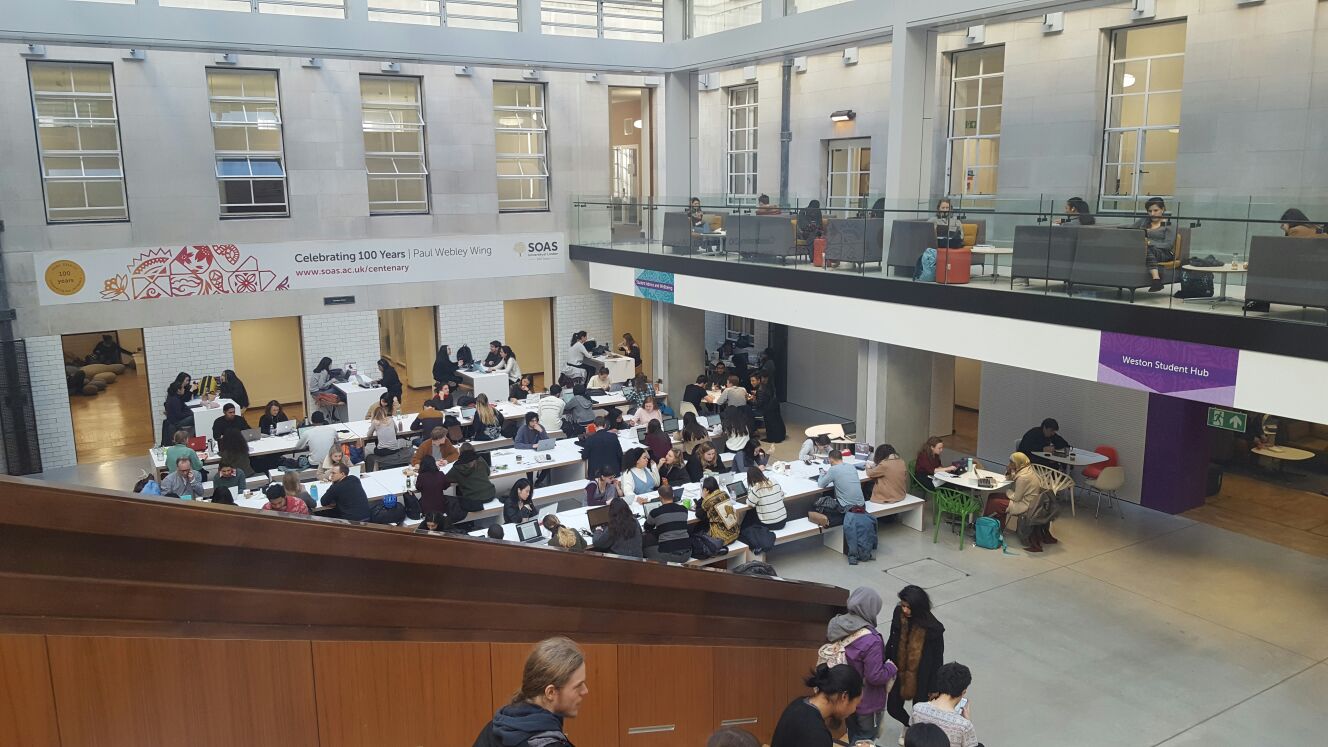By Alice McMahon, MA Near and Middle Eastern Studies
Evidence has emerged that ‘hundreds’ of students may have missed out on up to £7,500 of bursaries, according to officers in the Student Union.
In its Access Agreement for 2016-17, SOAS boasts of offering 152 Excellence Bursaries of £2,500 a year for up to three years, “targeted at care-leavers, students from low-participation neighbourhoods, first generation HE participants and household incomes up to £24,999”.
However, Laviniya Stennett, one of the Officers for Working Class Students, and Comfort Enloch-Moye, the People of Colour Officer, have accused SOAS of failing to allocate bursaries to 97 students who fell into this category in the year 2016-17.
Stennett said: “Hundreds of students have missed out on the bursary because it is automatically allocated. You cannot apply for the bursary. It uses means-tested information from the Student Finance Portal from incoming students (UK only) and ‘automatically allocates’ them. That means that anyone who has not applied for student finance and international students are excluded.”
According to Stennett, this also means that the individual circumstances of each student are not sufficiently considered. Although household income is assessed, students do not have the chance to declare other factors, such as whether they have been in care, are carers themselves, or have disabilities.
Furthermore, the SOAS website at the time did not make it clear that falling into the target group did not guarantee any financial support. The impact on the students who missed out, Stennett says, has been huge. They have heard from up to fifty students affected, some of whom have ‘failed their degree, dropped out [and] suffer from mental health issues’, as a result of not receiving the financial help that they needed.
SOAS management has responded by strongly rebutting the claims and questioning the use of the term ‘misallocation’. Deborah Johnston, Pro-Director for Learning and Teaching, said: “The £1.1million of SOAS funding for Excellence Bursaries in 2016-17 was fully allocated and paid to students in accordance with our published Access Agreement for 2016-17 which was developed and agreed with the Students’ Union in 2015.”
The School argues there is no question that the bursary money was ‘misallocated’ – the entire bursary fund was spent, on bursaries. However, for Stennett and Enoch-Moye, the focus on the semantics of the argument misses the point: what is important is that students did not get the financial support they needed from SOAS, and which SOAS implied would be there for them. For Stennett, this is just one part of a wider campaign to stand up for working-class students who are disadvantaged in and outside SOAS. This involves taking on discriminatory issues such as library fines, which unfairly penalise poorer students, and the system of applying for hardship grants, which consists of an interrogative process that has made some students feel uncomfortable.
This sentiment has been echoed by the Student Union, which this week issued a statement of support for Stennett and Enoch-Moye’s position and the use of the term ‘misallocation’. The SU also stressed the wider context of the dispute, something which is also important to Stennett and Enoch- Moye. In a statement, the SU said: “The struggle for the reallocation of bursaries must be read within the context of SOAS’s colonial legacy. The university continues to replicate and reinforce structural inequality, as exemplified by the racial attainment gap and racial and gendered hierarchies within the workplace… The school is all too eager to adopt decolonizing when it suits them as a marketing tool, but is unwilling to redress the financial inequality that continues to disproportionately affect black and working class students.”
In order to move forward, SOAS management and the SU have announced a series of meetings to consider the possibility of additional bursary funds or fee waivers, potentially funded by strike deduction funds. In addition, Stennett and Enoch-Moye have declared that they will be putting together an Access Report representing the experiences of disadvantaged students, highlighting the importance of financial aid. Students who wish to contribute can contact [email protected].
That said, against a background of rising fees and increased concerns about the marketization of universities, as evidenced by the ongoing strikes, it is unlikely that the issues fuelling this row are going to go away any time soon.
